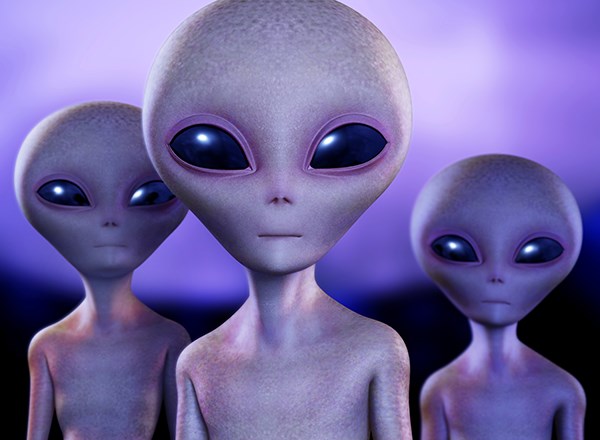It’s the kind of headline you’d expect to read on the cover of the National Enquirer or some such tabloid, sandwiched between stories about Elvis’s two-headed baby and the Loch Ness Monster being spotted in someone’s bathtub. And the source usually turns out to be an obese psychic in New Jersey or a farmer in Arkansas who says he was abducted by little green men while attending to his whiskey in the mountains with his dog, Bubba.
But when I read “Indications of alien life by 2025,” it was a real news story on CNN’s website, and it was NASA chief scientist Ellen Stofan who was making that bold statement.
According to the story, Stofan was on a panel recently speaking about water in our universe, when she said, “I think we’re going to have strong indications of life beyond Earth within a decade, and I think we’re going to have definitive evidence within 20 to 30 years.”
Whoa. Don’t you think a chief NASA smartypants saying “Dude, everything is going to go all Star Trek and X-Files soon” (to inaccurately paraphrase) warrants more attention in the media than, say, what they’re going to name a royal baby? I’d think so.
The question of whether we are alone in the universe has been on our minds since we first looked at the stars. Well, probably not the first time we saw the stars. The first time, our prehistoric ancestors probably either cowered in fear, or thought they were bugs and threw rocks at them. But after that, once we figured things out a bit I’m sure we were all like, “I wonder what’s up there”… and stuff.
That (eventual) curiosity led us to perfect and build technology like the Hubble Space Telescope, which has enabled scientists to explore the vastness of space, and discover the all-important H2O on other celestial bodies.
Apparently, finding water on other planets is the key to finding other life, or I guess life that works in the same way we do down here on Earth. According to the article, scientists have already found “evidence or indications” of water on the dwarf planet Ceres and Jupiter’s moon Europa. They didn’t find any green men, though.
But the important thing is they are actually looking.
““We know where to look. We know how to look,” Stofan said at the panel. “In most cases, we have the technology, and we’re on a path to implementing it. And so I think we’re definitely on the road.”
Actually, I’m surprised with all the stuff we’ve shot into space that our interstellar neighbours haven’t dropped by sooner to let us know our junk was cluttering up the cosmic community. Heck, we’ve even sent probes out to deep space to let them know where we are, what we look like and like to do. It’s like some sort of planetary dating profile. However, according to professor Stephen Hawking, if an alien civilization did indeed have the technology to travel from a distant star to our little solar system, then the chances are they would be invaders rather than simply explorers.
But we really don’t have to worry about that just yet, according to Stofan at the event.
“We are not talking about little green men. We are talking about little microbes.”
Microbes? So, instead of the type of aliens that arrive on big spaceships with lasers blasting, or the kind that throws acid up on you and melts your face… it’s the kind that might give you the sniffles?
Okay, maybe that’s not “Royal Baby Name” important… but then again, it actually seems more insidious if you really think about it. Microscopic aliens could invade us from within!
Now that is a National Enquirer headline.




